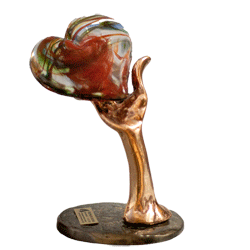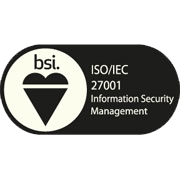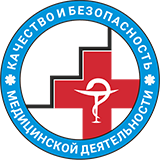Functional Magnetic Resonance Imaging (fMRI)
Functional magnetic resonance imaging (fMRI) is an MRI technique that measures the hemodynamic response (change in blood flow) associated with neuronal activity. An fMRI does not allow you to see the electrical activity of neurons directly, but does so indirectly, thanks to the phenomenon of neurovascular interaction. This phenomenon represents a regional change in blood flow in response to the activation of nearby neurons, as they need more oxygen and nutrients brought through the bloodstream when their activity is increased.
An fMRI examination is a way of imaging the internal structure of the brain with the help of strong magnetic fields. A few simple exercises should be performed during the examination to activate certain brain centers. With the help of these tasks a doctor will find such an area of the brain that controls speech and movement.
There are two main methods of carrying out an fMRI:
- with measuring the functional activity of the cortex when performing a certain task in comparison with its activity at rest and with the control task (task fMRI);
- with measuring of the functional activity of the resting cortex.
Contraindications to fMRI:
- electronic middle ear implants;
- an aneurysm clip;
- a pacemaker;
- a breast tissue expander;
- an automated implantable cardioverter defibrillator (AICD);
- renal failure (medical consultation is required);
- foreign metal objects.
Another type of examination is prescribed to a patient, if it is not safe for him/her to carry out this procedure.
Procedure preparation
If a patient has a medical implant or device (e.g. a port), he/she should check its name and manufacturer with the doctor who fitted it. If the patient does not have this information before the appointed day, he/she may not be able to make an fMRI this day.
During the fMRI, the patient will lie on the back with his/her arms stretched out at the sides. If the patient thinks that it would be uncomfortable lying still, or if he/she is afraid of being in a confined or restricted space, it should be discussed with the doctor or nurse in advance.
If the patient uses contact lenses, they should be worn on the day of the scan. This will make it easier for him/her to complete the tasks that will be asked to do during the examination.
If the patient has a treatment patch on the skin, he/she will need to remove it before the procedure. This is because the metal in the patch can get hot during the fMRI and cause burns this way. The patient should make sure he/she takes a spare treatment patch with him/her that can be applied after the procedure.
Removing devices from the skin
These devices should be removed before undergoing the examination:
- a continuous glucose meter (CGM);
- an insulin pump.
The patient has to contact his/her doctor to schedule a visit closer to the date of the scheduled replacement of the device. The patient should make sure he/she brings a spare device with him/her that can be put on after the fMRI.
Procedure day
What should patients remember?
- Before the examination, patients can take their medications as usual.
- If patients have some medical devices installed, they should bring the information card given to them by the nurse on the appointed day.
- If patients have therapeutic patches on their skin, it is necessary to take another one with them.
- If a patient’s doctor has prescribed some medication to help him/her calm down during the procedure, a patient should take it with him/her. It is prohibited to take it without first talking to the lab technician who will carry out the fMRI.
What should patients prepare for on the day of the procedure?
Before entering the scanning room, a patient should change his clothes into a hospital shirt. For safety purposes, patients will need to leave their clothes, credit cards and other possessions (such as phones, jewelry, belts, coins and glasses) in a special locker. This is because these objects contain small amounts of metal. They can become magnetized, possibly damaging mobile phones and credit cards.
No special training is required of the patient. In order to achieve optimum MRI results, the patient must perform the tasks correctly. For this purpose, before entering the MRI scanning room, the patient is given a detailed briefing and task training. Speech functions are tested, hand strength is assessed, and the patient's ability to perform the tasks is ascertained. These tasks can contain picking up words that fit a certain category or answering questions about the patient's speech or strength. At this point, patients should tell the doctor about their speech problems.
A lab technician will take the patient to the scanning room and help him/her lie down on the tomograph’s table. It will make a loud tapping sound during the procedure. When the patient lies comfortably on the table, the lab technician will slide it into the scanner and begin the MRI procedure.
During the procedure the patient will be asked to do some tasks for about 20-25 seconds. This could be repeated from five to six times. It is very important to lie without movements. An fMRI scan lasts from 30 to 60 minutes.
Procedure finishing
After the finishing of the fMRI, the lab technician will pull the table out of the tomograph and help the patient get up from it. After that it is allowed to pick up all belongings and leave the scanning room.
This procedure is completely safe, so no special care is needed and there are not any restrictions after it.
Our doctrors






The benefits of diagnosis by fMRI:
- A functional MRI scan is completely safe. The patient is not exposed to ionizing radiation (in comparison to CT scans).
- There is no need to inject a contrasting agent (it is replaced by the blood's own hemoglobin).
- Determining the degree of activity of certain areas of the patient's brain and spinal cord.
- Possibility of preoperative diagnosis of tumors and vascular anomalies.
- Diagnosis of neurodegenerative and psychiatric diseases (Alzheimer's, Parkinson's, schizophrenia, etc.).
- Identifying the group of patients who require cortical mapping.
- Diagnosis of severe forms of epilepsy. Surgical tactics to preserve functionally important areas of the cerebral cortex (e.g. frontal lobe surgery).
You can make an appointment for the examination, get all the additional information and know the price of an fMRI by phone by calling +7 (495) 126-13-12 (24/7), by filling out an application form on the website or at the clinic administration desk at the address: Moscow, the 2nd Tverskaya-Yamskaya Lane, building 10.








































